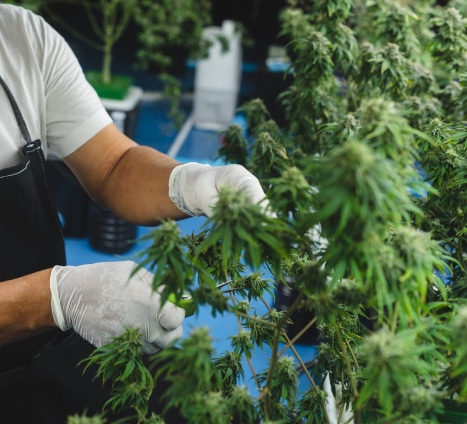How to Get a Cannabis License in Colorado
Colorado stands at the forefront of the cannabis revolution in the United States. With a rapidly growing market and evolving regulations, obtaining a cannabis license in Colorado is a coveted goal for many entrepreneurs.
Navigating the intricate landscape of marijuana laws is crucial for anyone aspiring to enter the marijuana business. This guide provides an expert walkthrough of the process, offering insights into the complexities and requirements of entering this dynamic industry.


Historical Context
The journey of cannabis legalization in Colorado is a testament to changing perceptions and progressive legislation. Colorado’s Amendment 64, passed in 2012, marked a pivotal moment, legalizing recreational cannabis. This historical backdrop is crucial for understanding the current regulatory framework governing cannabis licenses in the state.
Note that every local authority holds the right to exercise this law as they deem suitable. This means that some local jurisdictions might not allow you to set up a recreational cannabis business owing to their local rules regarding marijuana consumption.
How to Obtain a Cannabis License in Colorado?
Comprehensive Research and In-depth Preparation
Entering the cannabis industry in Colorado begins with meticulous research and preparation. Understanding the market, legal requirements, and potential challenges is essential for a successful application.
Market Analysis
A thorough market analysis helps in understanding the demand, consumer preferences, and market trends. It’s crucial to identify your niche in the cannabis market, whether it’s cultivation, retail, or ancillary services.
When establishing a business entity, you must consider not only the state tax license requirements but also the associated licensing fees and the license application fee.
Aspiring business owners should explore the nuances of obtaining a social equity license at an early stage to get a better understanding of the opportunities and challenges that lie ahead. This further includes understanding local rules and regulations, as local jurisdictions play a significant role in the licensing process.
Consumer Insights
Gaining insights into consumer behavior and preferences can shape your business strategy. This involves understanding the demographics, purchasing patterns, and preferences of your target market.
Regulatory Proficiency
Navigating the complex legal landscape is critical. Prospective entrepreneurs should familiarize themselves with the specific regulations governing both medical marijuana businesses and retail marijuana industries.
Note that Colorado residency is a fundamental requirement when applying for a cannabis license.
Competitive Analysis
Analyzing your competitors helps in identifying market gaps and opportunities for differentiation. Understand their strengths, weaknesses, and strategies.
Site Selection
Choosing the right location is pivotal. Consider factors like zoning laws, proximity to target markets, and local cannabis regulations.
Risk Assessment
Identify potential risks, including regulatory changes, market volatility, and operational challenges. Developing risk mitigation strategies is essential.
Network Building
Building a network with industry professionals, potential partners, and local authorities can provide valuable insights and support.
Develop a Solid Business Plan
Craft a comprehensive business plan detailing your market strategy, financial projections, and operational plans. This document is crucial for your license application and potential investors.
Assembling the Necessary Documentation
Gather all required documents, including business registration, tax information, and compliance plans. Ensure accuracy and completeness to avoid delays.
Submitting the Application
1. How to Apply for a New License
The application process involves submitting your business plan, documentation, and application fee to the Colorado Marijuana Enforcement Division (MED).
2. How to Renew Your License
License renewal requires demonstrating ongoing compliance and operational stability. Stay updated with renewal deadlines and requirements.
3. Agent Card Requirements
Individuals working in the cannabis industry must obtain an Agent Card, ensuring they meet the background check and regulatory standards.
4. Limitations on Employment
Understand the legal limitations on employment within the cannabis industry, including age restrictions and background checks.
5. How to Apply for an Agent Card
The application for an Agent Card involves a background check and submission of personal information to the MED.
Payment and Fees
Detail the cost structure for application fees, renewals, and other associated costs. These fees vary based on the type of license and the scale of operations.
Application Review and Compliance Inspection
Once submitted, your application undergoes a review process. Be prepared for compliance inspections and additional queries from the MED.
Post-Application Steps
After approval, focus on setting up your operations, ensuring ongoing compliance, and building your presence in the market.
Types of Cannabis Licenses in Colorado
Colorado’s cannabis industry offers various license types, each catering to different aspects of the business. Here are five key types of cannabis licenses available in Colorado, along with their details and requirements
1. Retail Marijuana Store License
Details
This license allows for the sale of marijuana products to consumers aged 21 and over. Retail stores can sell a variety of cannabis products, including flower, edibles, concentrates, and topicals.
Requirements
- Compliance with local zoning laws.
- Applicants must be Colorado residents.
- Background checks for owners and employees.
- Financial checks to ensure legitimate funding sources.
- A detailed business plan including security measures and employee training programs.
2. Medical Marijuana Center License
Details:
This license is for businesses that sell marijuana products to registered medical marijuana patients. These centers focus on patients with specific health conditions that qualify for medical marijuana use.
Requirements:
- At least one of the business owners must be a Colorado resident for two years prior to application.
- Detailed patient education and record-keeping plans.
- Strict compliance with patient possession and sales limits.
- Security and surveillance systems to monitor the premises.
- Compliance with the Health Insurance Portability and Accountability Act (HIPAA) to protect patient information.
3. Marijuana Cultivation Facility License
Details
This license permits the growing and harvesting of cannabis plants. Cultivation facilities vary in size and can be tailored for either medical or recreational marijuana production.
Requirements
- Adequate facilities for growing, including considerations for lighting, ventilation, and security.
- Water rights and environmental compliance.
- Detailed tracking system for each plant from seed to sale.
- Compliance with state and local laws regarding pesticide use and plant waste disposal.
- Regular inspections by state authorities.
4. Marijuana Product Manufacturing License
Details
This license is for facilities that produce marijuana-infused products such as edibles, concentrates, tinctures, and topicals.
Requirements
- Compliance with food safety standards for edible products.
- Proper labeling and packaging in line with state regulations.
- Detailed processes for extraction and infusion of cannabis.
- Ventilation and safety protocols for handling volatile substances (in the case of concentrates).
- Regular product testing to ensure potency and purity.
5. Marijuana Testing Facility License
Details
These facilities are responsible for testing marijuana and marijuana products for potency, contaminants, and quality assurance.
Requirements
- Advanced laboratory equipment and qualified staff.
- Compliance with state-mandated testing procedures.
- Independence from other cannabis businesses to ensure unbiased testing.
- Detailed record-keeping of all samples and test results.
- Regular calibration and maintenance of testing equipment.
Each of these licenses requires adherence to specific state and local regulations. Applicants must ensure they meet all criteria and maintain compliance to operate legally within Colorado’s cannabis industry. Regular updates and consultations with legal experts are advisable to stay informed about any changes in the regulatory landscape
Each of these marijuana licenses, including those for adult use cannabis establishments, comes with its own set of challenges and responsibilities. It’s crucial to stay updated with the ever-evolving regulations and the licenses issued, especially those related to adult use cannabis, by regularly checking the official Colorado government pages. As the cannabis industry in Colorado continues to flourish, ensuring compliance and understanding the nuances of each business license and type will pave the way for a successful venture.
Risk and Compliance Factors From AlphaRoot
The cannabis industry, while burgeoning with opportunities, is not without its complexities and inherent risks. Understanding and mitigating these risks is crucial for long-term success. AlphaRoot, a prominent insurance and risk management firm specializing conduct business in the cannabis sector, sheds light on the key risk and compliance factors
Labyrinthine Regulations The cannabis industry is highly regulated, and compliance with state and local laws is paramount for cannabis establishments. Navigating the intricate web of regulations, which can vary significantly from one jurisdiction to another, poses a substantial challenge for cannabis establishments. Failure to comply can result in fines, license revocation, or legal consequences.
Federal Ambiguity Cannabis remains illegal at the federal level in the United States, despite state-level legalization of recreational marijuana. This dichotomy creates uncertainties and exposes businesses that sell recreational marijuana here to potential federal enforcement actions.
Cash-Intensive Operations Due to federal banking restrictions, many cannabis businesses operate primarily in cash. This not only presents security risks but also complicates financial management and taxation.
Taxation Challenges Cannabis businesses face unique tax challenges, including limitations on deductions and potential audits. Understanding and complying with tax regulations is essential to avoid financial penalties.
Theft and Robbery Cannabis businesses are susceptible to theft and robbery due to the high value of their products. Implementing robust security measures at a marijuana cultivation facility, including surveillance systems and secure storage, is vital to mitigate these risks.
Cybersecurity As with any industry, cannabis businesses are vulnerable to cyberattacks. Protecting sensitive customer data and business information is critical.
Product Liability Claims Ensuring the safety and quality of cannabis products is crucial to prevent product liability claims. Contaminated or mislabeled products can lead to legal and financial repercussions.
Testing and Quality Assurance Collaborating with reputable independent testing laboratory and facilities, as required by regulations, is essential to verify the safety and potency of cannabis products. Consistent quality control is essential to maintain consumer trust.
Saturated Markets in regions with a high concentration of cannabis businesses, competition can be fierce. Navigating market saturation requires effective differentiation and marketing strategies.
Price Volatility The price of cannabis products can fluctuate significantly, impacting profitability. Businesses must adapt to market dynamics and price changes.
Resource Intensity Cannabis cultivation and processing can be resource-intensive, including water and energy consumption. Businesses need to address sustainability concerns and adhere to environmental regulations.
Waste Management Proper waste disposal and recycling practices are essential to minimize environmental impact and meet regulatory requirements.
Talent Shortages the cannabis industry often faces challenges in recruiting and retaining qualified personnel due to its specialized nature. Employee turnover can disrupt operations.
Training and Compliance Businesses must invest to ensure employees are well-informed about compliance and safety protocols.
Expert Insights
Isaac Bock, a well-known figure in the cannabis sector, emphasizes that success in Colorado’s cannabis industry hinges on keeping cannabis establishment of regulations, maintaining ongoing community involvement, and upholding the highest standards of product quality.
Conclusion
Navigating the path to obtaining a cannabis license in Colorado is a complex but rewarding journey. It requires thorough preparation, understanding of the regulatory landscape, and strategic planning. By adhering to the guidelines and insights provided in this guide, entrepreneurs can increase their chances of success in this burgeoning industry.
FAQ Section
Q: How do I renew my Colorado cannabis establishment license?
A: Renewal involves submitting updated documentation, paying renewal licensing fees and compliance reports to the MED before the expiration of the current license.
Q: What are the tax rates for cannabis in Colorado?
A: Cannabis businesses in Colorado are subject to state and local taxes, which vary based on the type of product and location. You can check the most updated information regarding marijuana regulations and laws on Colorado Department of Revenue’s website.
Q: What are the advertising guidelines for cannabis in Colorado?
A: Advertising must comply with state regulations, including restrictions on targeting minors and making unverified health claims.
Q: How can I work in the cannabis industry in Colorado?
A: To work in the Colorado cannabis industry, individuals must obtain an Agent Card and comply with state and federal labor employment regulations.
Additional Resources
For the latest information and updates, visit the official websites of Colorado’s regulatory authorities and stay informed about the evolving marijuana landscape.